
The United Nations Angola Verification Mission II, established May 1991 and lasting until February 1995, was the second United Nations peacekeeping mission, of a total of four, deployed to Angola during the course of the Angolan Civil War, the longest war in modern African history. Specifically, the mission was established to oversee and maintain the multilateral ceasefire of 1990 and the subsequent Bicesse Accords in 1991, which instituted an electoral process for the first time including the two rival factions of the civil war, the People's Movement for the Liberation of Angola (MPLA), the de facto government of Angola, with control of Luanda and most of the country since independence in 1975, and the National Union for the Total Independence of Angola (UNITA).
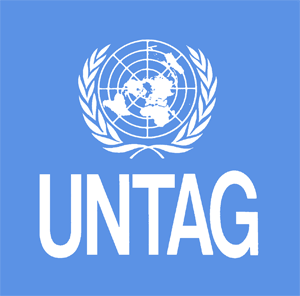
The United Nations Transition Assistance Group (UNTAG) was a United Nations (UN) peacekeeping force deployed from April 1989 to March 1990 in Namibia, known at the time as South West Africa, to monitor the peace process and elections there. Namibia had been occupied by South Africa since 1915, first under a League of Nations mandate and later illegally. Since 1966, South African forces had been combating an insurgency by the People's Liberation Army of Namibia (PLAN), the military wing of the Namibian-nationalist South West African People's Organization (SWAPO). The UN Security Council passed Resolution 435 in 1978, which set out a plan for elections administered by South Africa but under UN supervision and control after a ceasefire. However, only in 1988 were the two parties able to agree to a ceasefire. As UNTAG began to deploy peacekeepers, military observers, police, and political workers, hostilities were briefly renewed on the day the transition process was supposed to begin. After a new round of negotiations, a second date was set and the elections process began in earnest. Elections for the constitutional assembly took place in November 1989. They were peaceful and declared free and fair; SWAPO won a majority of the seats. The new constitution was adopted four months later and it was followed by Namibia's official independence and the successful conclusion of UNTAG.
The Agreement among the People's Republic of Angola, the Republic of Cuba, and the Republic of South Africa granted independence to Namibia from South Africa and ended the direct involvement of foreign troops in the Angolan Civil War. The accords were signed on 22 December 1988 at the United Nations Headquarters in New York City by the Foreign Ministers of People's Republic of Angola, Republic of Cuba and Republic of South Africa.
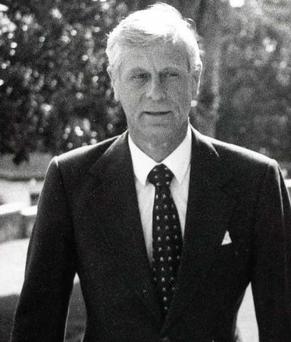
Louis Alexander Pienaar was a South African lawyer and diplomat. He was the last white Administrator of South-West Africa, from 1985 through Namibian independence in 1990. Pienaar later served as a minister in F W de Klerk's government until 1993. He married Isabel Maud van Niekerk on 11 December 1954.
The Western Contact Group (WCG), representing three of the five permanent members of the UN Security Council - France, United Kingdom and United States - and including Canada and West Germany, launched a joint diplomatic effort in 1977 to bring an internationally acceptable transition to independence for Namibia, after a decade of illegal occupation by apartheid of South Africa.

United Nations Security Council Resolution 435, adopted on September 29, 1978, put forward proposals for a cease-fire and UN-supervised elections in South African-controlled South West Africa which ultimately led to the independence of Namibia. Importantly, it established the United Nations Transition Assistance Group (UNTAG) which oversaw the election and the South African withdrawal.
In the Angola–Cuba Declaration of 1984, signed 19 March 1984 in Havana by president José Eduardo dos Santos of Angola and Fidel Castro, premier of Cuba, the two countries agreed to the withdrawal of Cuban forces from Angola after the withdrawal of South African troops from Angola and Namibia, and after UN-Security Council resolution 435 on Namibian independence was strictly applied.

Namibia–South Africa relations refers to the current and historical relationship between Namibia and South Africa. South Africa captured the area now known as Namibia from Germany during World War I and governed it, by the name 'South West Africa', until 1990, when the country gained independence under the name 'Namibia'. During those 75 years, thousands of South Africans settled in the territory and South Africa treated the area as effectively a fifth province of both the Union and the Republic, imposing apartheid laws in South West Africa as it did in South Africa.

United Nations Security Council resolution 602, adopted unanimously on 25 November 1987, after hearing representations from the People's Republic of Angola, the council recalled resolutions 387 (1976), 428 (1978), 447 (1979), 454 (1979), 475 (1980), 545 (1983), 546 (1984), 567 (1985), 571 (1985), 574 (1985) and 577 (1985), expressing its concern at the continuing military incursions into the country by South Africa through occupied South West Africa (Namibia).

United Nations Security Council resolution 626, adopted unanimously on 20 December 1988, after noting an agreement between Angola and Cuba regarding the withdrawal of Cuban troops from Angola and considering a report by the Secretary-General, the Council endorsed the report and established the United Nations Angola Verification Mission I for a period of thirty-one months.

United Nations Security Council resolution 629, adopted unanimously on 16 January 1989, after recalling resolutions 431 (1978), 435 (1978) and 628 (1989), the council noted that the parties to the Brazzaville Protocol agreed that 1 April 1989 be established as the date of the South African withdrawal from Angola and therefore lead the way to the independence of Namibia.
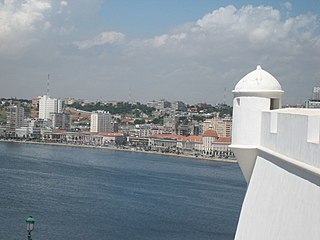
United Nations Security Council resolution 804, adopted unanimously on 29 January 1993, after reaffirming resolutions 696 (1991), 747 (1992), 785 (1992) and 793 (1992), and expressing its concern at lack of implementation of the "Acordos de Paz para Angola" in Angola, the council approved a recommendation by the Secretary-General Boutros Boutros-Ghali to extend the mandate of the United Nations Angola Verification Mission II for a further three months until 30 April 1993.
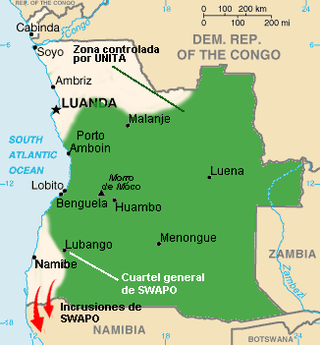
United Nations Security Council resolution 851, adopted unanimously on 15 July 1993, after reaffirming resolutions 696 (1991), 747 (1992), 785 (1992), 793 (1992), 804 (1993), 811 (1993), 823 (1993) and 834 (1993), the Council noted the continuing deterioration of the situation in Angola and extended the mandate of the United Nations Angola Verification Mission II until 15 September 1993, discussing further the peace process in the country.

United Nations Security Council resolution 864, adopted unanimously on 15 September 1993, after reaffirming resolutions 696 (1991), 747 (1992), 785 (1992), 793 (1992), 804 (1993), 811 (1993), 823 (1993), 834 (1993) and 851 (1993), the Council noted the continuing situation in Angola and went on to condemn and place international sanctions on UNITA.

United Nations Security Council resolution 922, adopted unanimously on 31 May 1994, after reaffirming Resolution 696 (1991) and all subsequent resolutions on Angola, the council discussed the peace process during the civil war and extended the mandate of the United Nations Angola Verification Mission II until 30 June 1994.

United Nations Security Council resolution 976, adopted unanimously on 8 February 1995, after reaffirming resolutions 696 (1991) and all subsequent resolutions on Angola, the Council authorised the establishment of a new peacekeeping mission in the country, the United Nations Angola Verification Mission III with an initial mandate ending on 8 August 1995.

United Nations Security Council resolution 1008, adopted unanimously on 7 August 1995, after reaffirming Resolution 696 (1991) and all subsequent resolutions on Angola, the Council discussed the monitoring of a ceasefire and implementation of peace accords, and extended the mandate of the United Nations Angola Verification Mission III until 8 February 1996.

United Nations Security Council resolution 1064, adopted unanimously on 11 July 1996, after reaffirming Resolution 696 (1991) and all subsequent resolutions on Angola, the Council discussed the peace process, and extended the mandate of the United Nations Angola Verification Mission III until 11 October 1996.
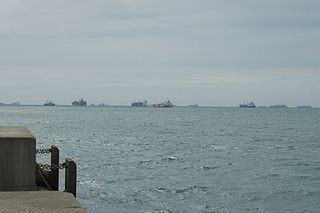
United Nations Security Council resolution 1135, adopted unanimously on 29 October 1997, after reaffirming Resolution 696 (1991) and all subsequent resolutions on Angola, the Council extended the mandate of the United Nations Observer Mission in Angola (MONUA) until 30 January 1998 and urged UNITA to comply with previous resolutions, particularly as sanctions were due to come into effect.
Operation Merlyn was a military operation by the South African Defence Force (SADF), South West African Territorial Force (SWATF) and South West African Police (SWAPOL) during the South African Border War and Angolan Civil War in April 1989. The aim of the operation was to prevent the incursion of PLAN (SWAPO) insurgents into South West Africa/Namibia from bases in Angola. These incursions were in violation of a ceasefire which came into effect on 1 April 1989 via the implementation of United Nations Security Council Resolution 435 and the Tripartite Accord. Initially, these PLAN incursions were tackled by South West African police units and eventually by SADF and SWATF units, released to assist the police having been confined to their bases by the peace agreements. These incursions and the conflict that occurred ended after hastily arranged talks resulted in the Mount Etjo Declaration and an eventual ceasefire.















